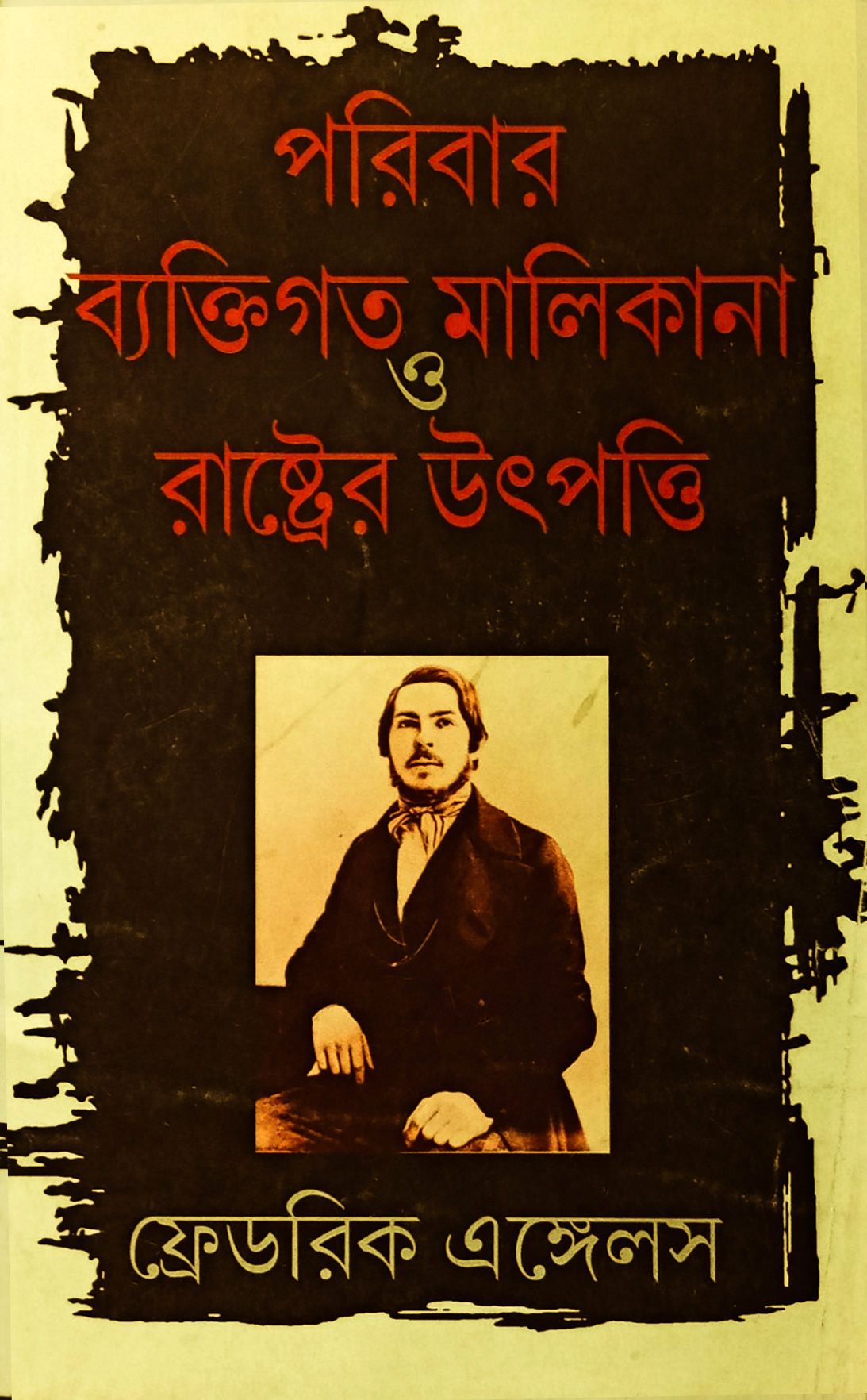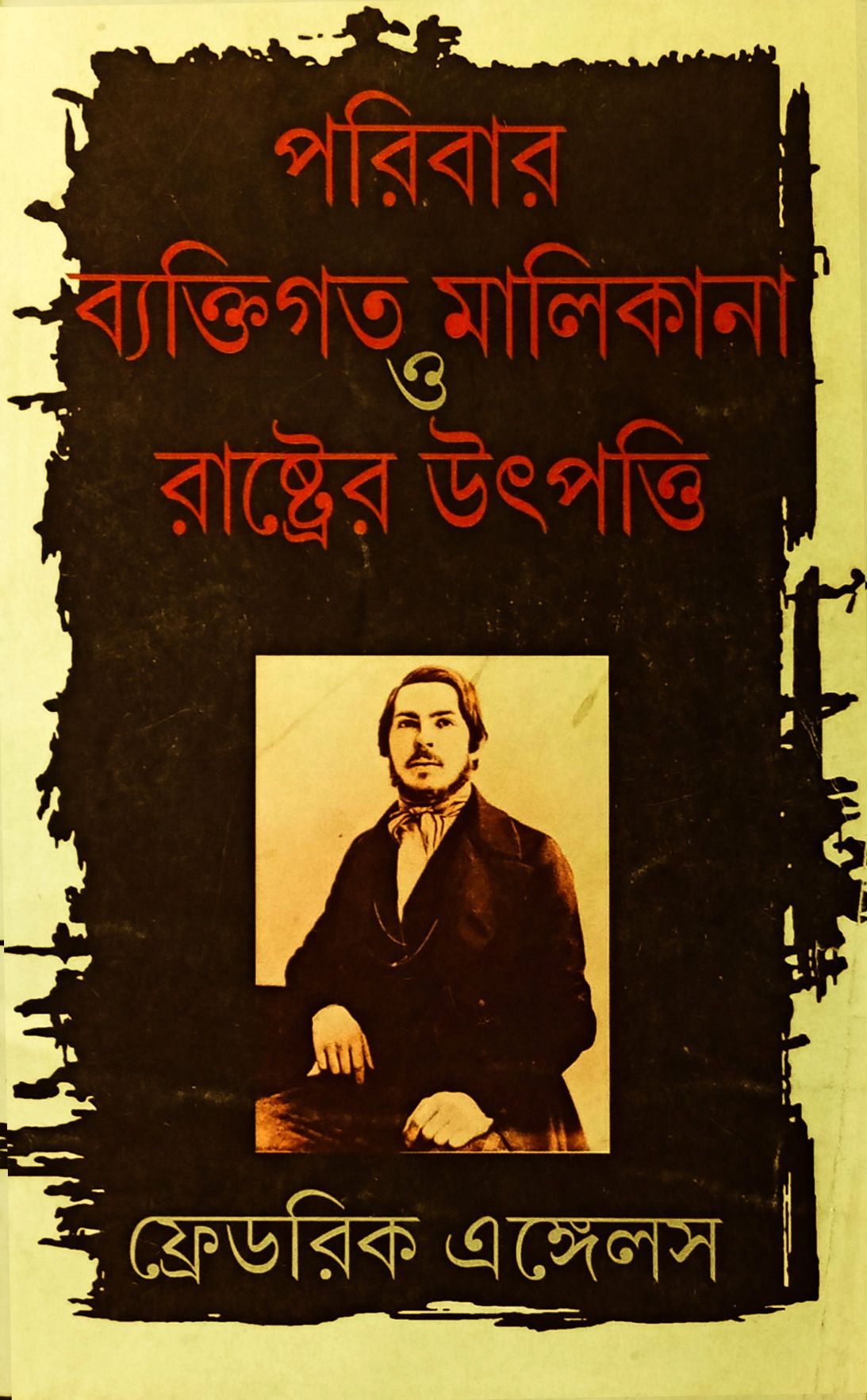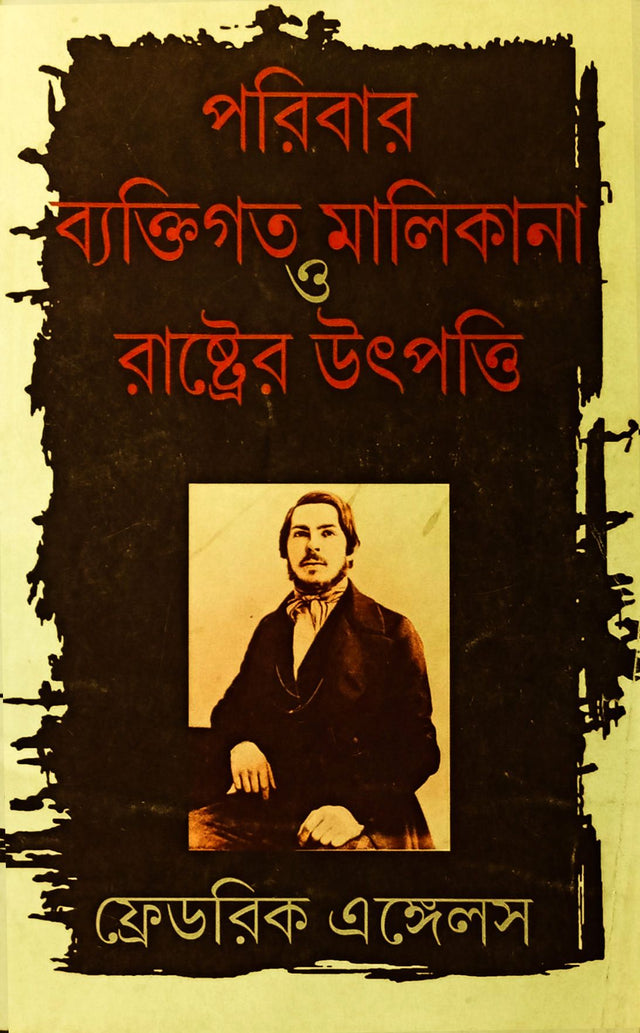Paribar, Byaktigata Malikana - o - Rashtrer Utpotti
Paribar, Byaktigata Malikana - o - Rashtrer Utpotti is backordered and will ship as soon as it is back in stock.
Couldn't load pickup availability
Genuine Products Guarantee
Genuine Products Guarantee
We guarantee 100% genuine products, and if proven otherwise, we will compensate you with 10 times the product's cost.
Delivery and Shipping
Delivery and Shipping
Products are generally ready for dispatch within 1 day and typically reach you in 3 to 5 days.
-
Author: Friedrich Engels
-
Publisher: National Book Agency Private Limited
-
Language: Bengali
-
First Publication Year: 1950
-
Publication Year: 2019
-
Edition: 13th Edition
-
Binding: Paperback
-
Number of Pages: 148
-
ISBN: 9789348253194
About The Book:
Paribar, Byaktigata Malikana - o - Rashtrer Utpotti (The Origin of the Family, Private Property, and the State) is a foundational text by Friedrich Engels that critically examines the development of human society and the formation of private property, the family, and the state. Engels' analysis explores how the emergence of private property transformed social relations and led to the establishment of the state as an institution to protect these interests.
Engels explores the historical progression from early communal societies to the division of labor, leading to the formation of class-based societies. He argues that the rise of private property was integral to the oppression of women and the creation of hierarchical structures. Engels emphasizes that the family and private property were closely linked, and the state arose to maintain these social structures, ultimately serving the interests of the ruling class.
This book is a critical Marxist work that continues to be a major influence on the understanding of the role of family, property, and state in the history of human societies. The Bengali translation makes Engels' ideas accessible to a wider audience, contributing to a deeper understanding of Marxist theory and its analysis of society.





